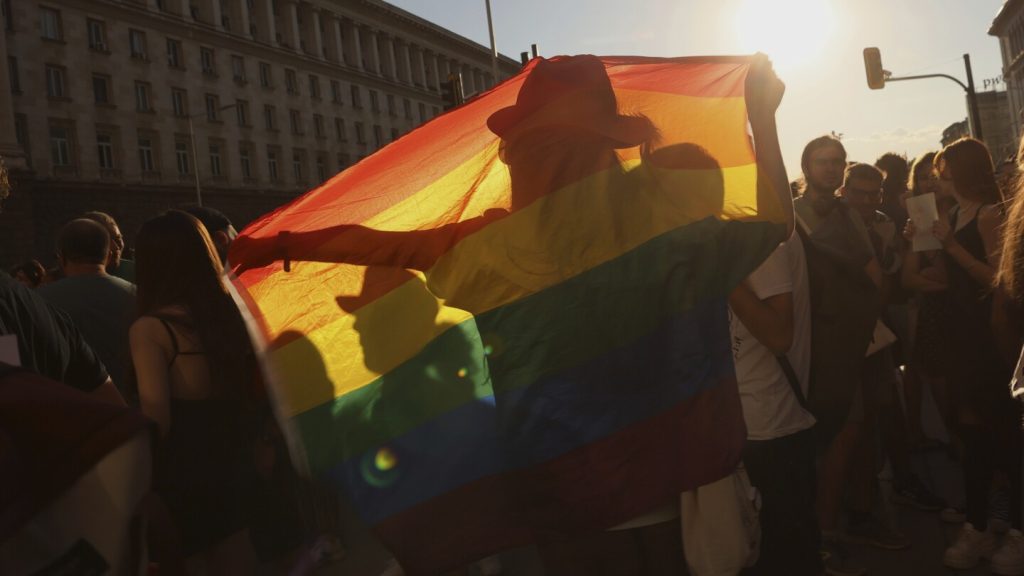The recent protest in Bulgaria was organized to denounce a controversial legal amendment that bans discussions of LGBTQ+ and non-traditional sexual choices in schools. The protesters, including feminist, LGBTQ+, and other rights groups, called for a reversal of the amendment, which they believe promotes “LGBTQ+ propaganda in schools”. The protesters waved rainbow flags and chanted slogans like “Bulgaria is no Russia” and “Silence means death”, while police officers guarded the rally. The amendment was approved by Bulgaria’s parliament, with 159 lawmakers voting in favor of the change. The amendment prohibits the promotion and support of ideas related to non-traditional sexual orientation or sexual identification in schools.
In addition to banning the promotion of non-traditional sexual orientation, lawmakers in Bulgaria approved a law defining it as any orientation different from the generally accepted notions of attraction between persons of the opposite sex. This move has sparked criticism from European Union member countries, as Bulgaria has been accused of violating the rights of the LGBTQ+ community. The country has faced calls to ensure recognition and protection for LGBTQ+ individuals, as well as pressure to ratify the Istanbul Convention on preventing violence against women, which is believed to promote LGBTQ+ rights. European rights groups, like Forbidden Colors, have condemned the legislation as an assault on the fundamental rights of LGBTQ+ individuals, particularly children.
Forbidden Colors released a statement expressing concern over Bulgaria adopting tactics similar to Russia’s anti-human rights playbook. The group highlighted that these actions go against the values of equality and non-discrimination that the European Union upholds. Similar anti-LGBTQ+ legislation has been implemented in other countries in the region, such as Hungary, Bosnia, Moldova, and Turkey. These laws have sparked outrage among human rights organizations and activists who argue that they restrict the rights and freedoms of LGBTQ+ individuals. The situation in Bulgaria has drawn attention to the ongoing struggle for LGBTQ+ rights in Eastern Europe and the need for continued advocacy and support for marginalized communities.
The passage of the controversial amendment in Bulgaria has reignited discussions about LGBTQ+ rights and discrimination in the country. Activists have vowed to continue fighting against the legislation and advocating for equal rights for all individuals, regardless of sexual orientation or gender identity. The divide between pro-Russian and pro-European factions within Bulgarian politics has been highlighted by this issue, as well as the larger conversation about human rights and equality in the region. The protest outside of parliament served as a visible demonstration of the public’s opposition to the amendment and their commitment to advocating for LGBTQ+ rights. Moving forward, the outcome of this legislation in Bulgaria will likely have broader implications for LGBTQ+ communities in Eastern Europe and beyond.
As the international community watches closely, pressure is mounting on Bulgaria to address the concerns raised by human rights organizations and ensure that the rights of LGBTQ+ individuals are protected and upheld. The situation in Bulgaria serves as a reminder of the ongoing fight for equality and non-discrimination, and the importance of continued activism and advocacy in support of LGBTQ+ rights. The coming days and weeks will be critical in determining the future of LGBTQ+ rights in Bulgaria and the broader region, as activists and supporters continue to push for progress and equality for all individuals.














